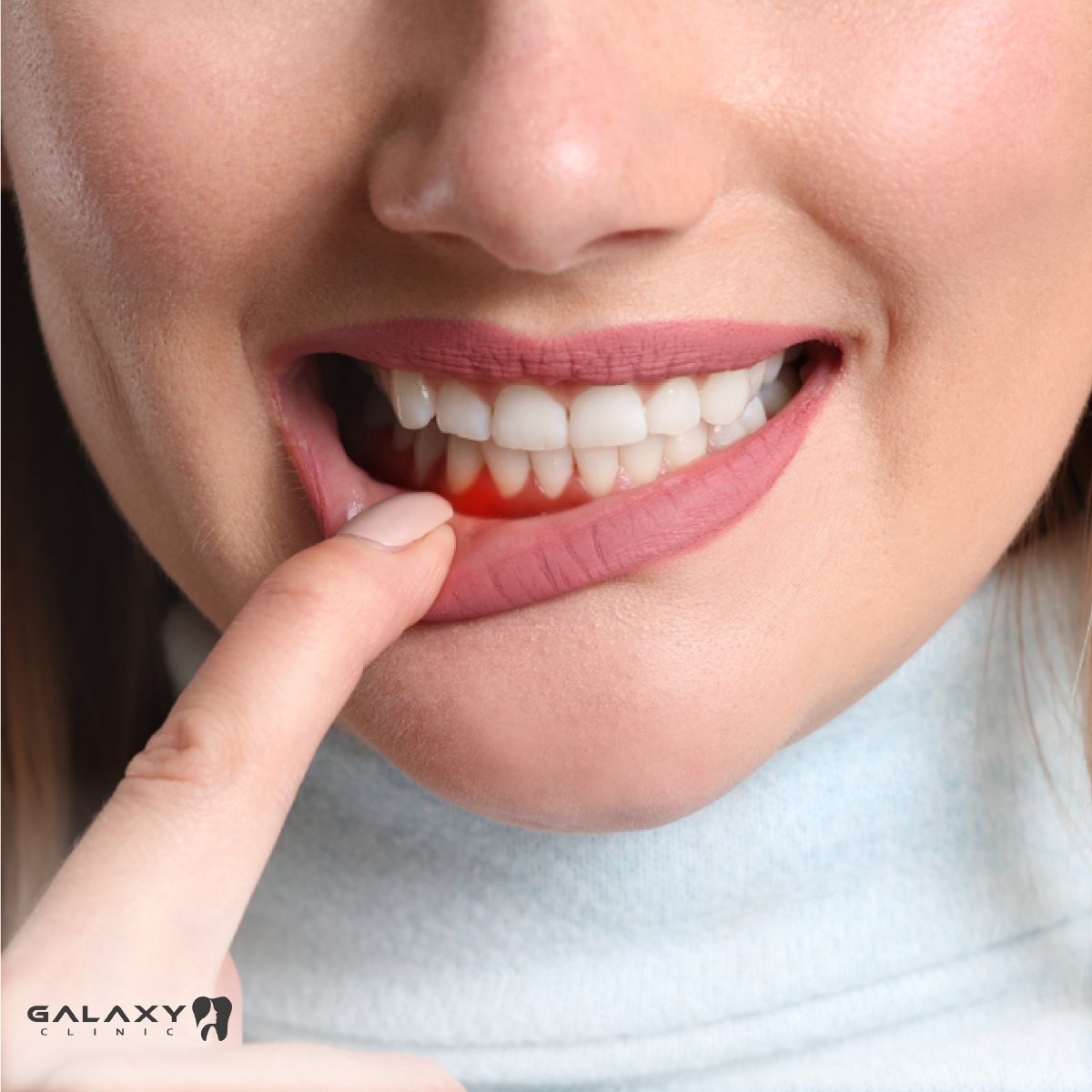Gingivitis (Gum disease)
Bacterial growth in your mouth causes gum diseases that if left untreated could drive into tooth loss due to damage of the tissue that is around your teeth. Bacterial growth starts when the individual doesn’t care about their dental hygiene as he/she neglects to brush, floss or rise with a mouthwash! Improper hygiene leads to plaque formation around your teeth, leading to releasing acids that attack your teeth’s outer shell (enamel) causing decay.
After 72 hours, plaque converts into tartar resulting in difficulties in cleaning your teeth and gums! By time, this causes gum inflammation and irritations leading to gingivitis.
What signs and symptoms will you feel when your gum is inflamed?
Some patients don’t feel that they have gum diseases, as it may cause no symptoms! However, symptoms that may appear when there is gingivitis are:
- Gum redness and irritation.
- Bleeding when brushing or flossing teeth.
- Malocclusion, that is known as a condition where the upper teeth don’t align with the lower teeth.
- Allergy to cold and hot drinks.
- Pain when chewing .
- Bad mouth breath even after brushing teeth.
What increases the risk of gingivitis incidence?
Plaque formation is what causes gum disease, and there are several factors that increases plaque that leads developing gingivitis:
- Smoking, as the chemicals inside the cigarettes affects on the quantity of saliva in the mouth, which creates an environment that increases the incidence for oral bacteria formation.
- Diabetes,High blood sugar levels narrows blood vessels in our body, resulting in reduced blood flow of nutrients and blood that carries oxygen to the gum! And this will increase the risk for infection.
- Taking some medications, Oral contraceptives, Steroids, Anticonvulsants, Calcium Channel Blockers and Chemotherapy increase the risk of developing gingivitis due to their side effects in reducing mouth’s saliva.
- Misaligned teeth, Makes it harder for patients to clean between their teeth, and this increases the risk for making plaque as a result of food accumulation.
- Pregnancy and hormonal changes, Pregnant women is higher risk of developing gingivitis and bleeding due to hormonal changes.
- Genetic factors may increase the risk of gum diseases.
5 ways to maintain your gum health:
Proper and consistent oral hygiene prevents plaque formation and gingivitis , by following these advices:
- Keep your teeth clean by brushing them twice a day using a soft brush that can remove stuck food and plaque between your teeth and using a toothpaste with fluoride.
- Use dental floss as it removes food and plaque precisely in areas that the toothbrush can’t reach.
- Use mouthwash to prevent bad breath and plaque formation.
- Quit smoking as smokers are seven times more prone to develop gingivitis.
- Eat healthy and maintain a balanced diet, as bacteria formation increases when your diet is high in sugars and starches. And try to eat foods are rich in vitamin C that improves gum health.


